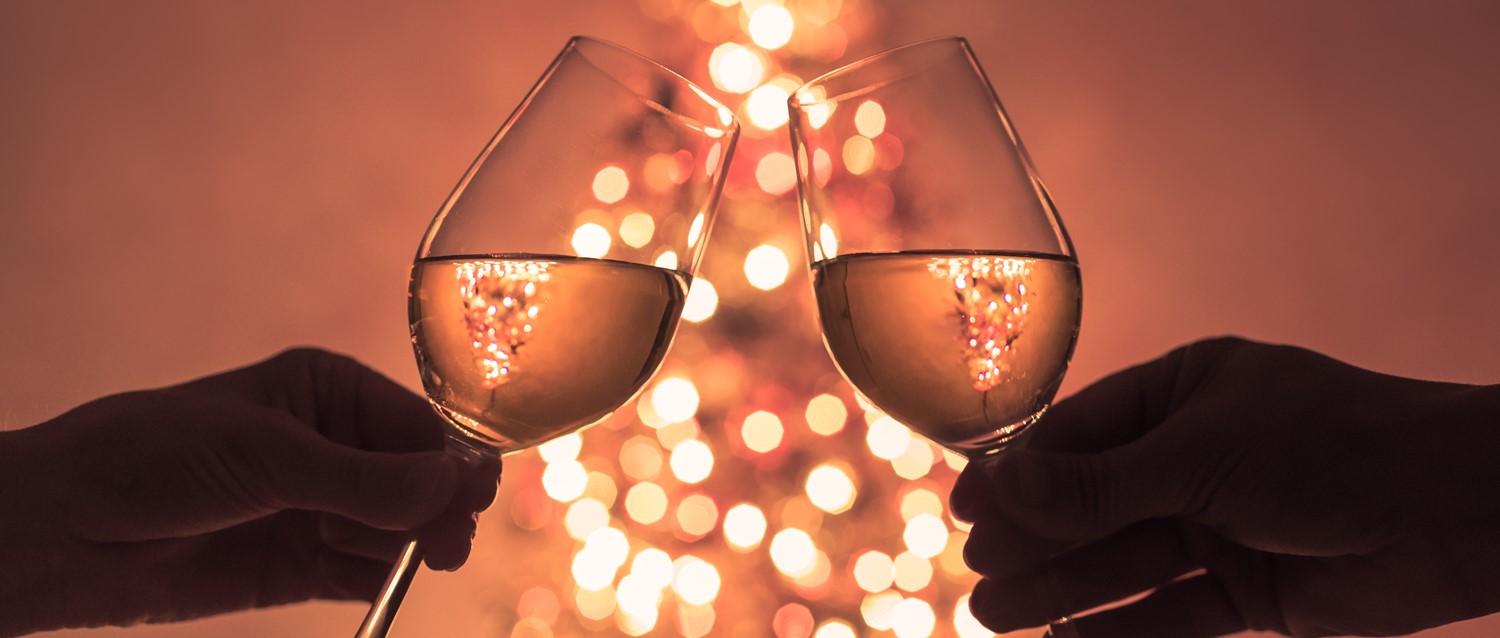
How to drink safely over Christmas and New Year
Peer reviewed by Dr Krishna Vakharia, MRCGPLast updated by Amberley DavisLast updated 16 Dec 2022
Meets Patient’s editorial guidelines
- DownloadDownload
- Share
- Language
- Discussion
As Christmas and New Year celebrations fill our calendars, it can be easy to over-do the festive drinking. By the time we're facing January, this can leave our bodies and minds in poor health. How can we enjoy festive drinking in a safe and healthy way?
In this article:
Continue reading below
Binge drinking at Christmas and New Year
"Christmas and the New Year are a time when friends and family get together. It's also a time for over-indulgence, which can mean we end up drinking more than we would like," explains Andrew Misell, director for Wales at Alcohol Change UK.
While enjoying alcohol over the festive season can be fun, it can also easily get out of control when our December diaries fill up with parties and dinners. Too much alcohol can cause us to make bad decisions, land us in unsafe situations and damage our health.
At Christmas time, we can also feel pressure to drink heavily, as Drinkaware UK points out: "Whether you face juggling families, work and friends with festive celebrations or whether this time of year is particularly tough for you, there can be a number of triggers that make you feel pressured to drink more than you usually do."
The effects and risks of heavy drinking
Festive fatigue
A lot of us will be all too familiar with the dehydration headaches, hot flushes, and nausea which can mark a hangover after a night of binge drinking. Alcohol interferes with several physiological functions, and hangovers occur as our blood alcohol concentration levels return to normal.
Over the Christmas and New Year season, drinking too much at regular intervals can take its toll. Alcohol can reduce the amount of rapid eye movement (REM) sleep we get. REM sleep is essential, good-quality sleep, and if we're missing out on this regularly, we can feel constantly low in energy.
Drunken decisions
The choices we make while intoxicated can have consequences. A little embarrassment caused from the memory of hogging the karaoke machine may be harmless, but sometimes our decisions can affect our physical or mental well-being.
"With more people than usual in the house, old tensions and niggles can arise, and alcohol can make that even worse," points out Misell.
Alcohol can also aid conflicts with work colleagues, which can lead to official warnings and professional setbacks. From kissing a colleague to passing out drunk, Drinkaware's research reveals that more than a quarter of us have regretted something we did while drinking at a work Christmas party.
Accidents and injury
Drinking alcohol also increases our chances of accidents and injury. Alcohol is a depressant, which means it suppresses the brain activity associated with inhibition. This can mean that the warning signals normally sent from the brain to our muscles may not work, and our response to danger is much slower.
The Institute of Alcohol Studies describes the other ways in which alcohol puts us at risk: "Alcohol has a range of psychomotor and cognitive effects that increase accident risk on reaction times, cognitive processing, co-ordination, vigilance, and vision and hearing, even at low blood alcohol levels."
As a result, just under one third of alcohol-related deaths are caused by unintentional injury, according to the World Health Organization (WHO). Drink driving is one of the main culprits. In 2020, the latest data available, there were around 1,490 road deaths or serious injuries caused by drinking alcohol in Great Britain.
The five most common accidents caused by alcohol:
Road accidents.
Domestic accidents.
Fires.
Drownings.
Workplace accidents.
Long-term health implications
Drinkaware warns of the long-term health issues that drinking too much can cause: "In the long run, it can significantly increase your risk of developing a range of diseases if you're regularly drinking over the recommended 14 units a week."
Regularly drinking over the government's recommended amount may lead to:
Alcohol dependence and addiction.
Some cancers.
Stomach disorders.
Severe inflammation of the pancreas (pancreatitis).
Mental health problems - including depression, anxiety, and panic attacks.
Brain disorders - including dementia, Wernicke's encephalopathy and Korsakoff syndrome.
Muscle and heart muscle disease.
Damage to nervous tissue.
Obesity and associated health risks.
Continue reading below
Drinking safely over Christmas and New Year
These consequences of binge drinking range from the inconvenient to the potentially fatal. While Christmas and New Year are all about merriment, no one should be taking a break from looking after their health.
"If you want to feel festive rather than frazzled, it's a good idea to make a plan in advance, of how much you want to drink, and try to stick to it," advises Misell.
"The Alcohol Change Try Dry app is the perfect way to keep track of how much you're drinking, how many units you've had and how much you've spent. And if you're planning on doing Dry January in the New Year, you can use it to track your dry days and savings."
Festive safe drinking tips
Stick to the UK Chief Medical Officers' low-risk drinking guidelines of less than 14 units of alcohol a week - typically six pints of beer or six medium glasses of wine - spread over several days.
Plan at least three drink-free days every week. Think about them in advance and plan what you will do instead - maybe an invigorating post-lunch walk, festive online quiz, or a family board games night.
Switch to a low-alcohol or alcohol-free drink. There are so many to choose from so why not try some festive alcohol-free cocktails.
Always eat before you drink. This slows down the rate that alcohol is absorbed into your system.
Avoid starting drinking too early, before or at the start of a festive event.
Think about what drinks you'll enjoy and cut out the ones that you won't.
Patient picks for Alcohol advice

Healthy living
How to drink safely over Christmas and New Year
As Christmas and New Year celebrations fill our calendars, it can be easy to over-do the festive drinking. By the time we're facing January, this can leave our bodies and minds in poor health. How can we enjoy festive drinking in a safe and healthy way?
by Amberley Davis

Healthy living
How to control your drinking at a work Christmas party
From kissing our colleagues to criticising the boss, more than 1 in 4 people in the UK have regretted something they did at a work Christmas party. Drinking too much alcohol is the main issue, so how can we control our drinking when we feel pressured?
by Amberley Davis
Continue reading below
Article history
The information on this page is peer reviewed by qualified clinicians.
16 Dec 2022 | Latest version
2 Dec 2021 | Originally published
Authored by:
Amberley Davis

Ask, share, connect.
Browse discussions, ask questions, and share experiences across hundreds of health topics.

Feeling unwell?
Assess your symptoms online for free
Sign up to the Patient newsletter
Your weekly dose of clear, trustworthy health advice - written to help you feel informed, confident and in control.
By subscribing you accept our Privacy Policy. You can unsubscribe at any time. We never sell your data.